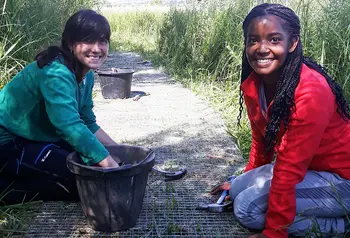Five tips for more robust and innovative heritage organisations

A thriving heritage sector is one where organisations are robust, enterprising and forward looking.
During this four-year campaign, we supported seven organisations to deliver programmes across the UK: five offered business support and two focused on enterprise development.
They engaged participants through a range of techniques – including group and one-to-one workshops, both in-person and online – to help build confidence, develop business strategies and gain skills in finance.
As the campaign comes to a close, we’ve collected a summary of learnings and advice from the organisations who took part.
Top five tips
One size doesn’t fit all
Think about what makes your organisation unique. Go back to basics and ask yourself questions like:
- What are your core aims?
- What is your staff and voluntary infrastructure like?
- What skills and resources already exist within your organisation?
By outlining these key factors, you can seek development opportunities that make sense for you.
Fundraising was an important element for a participant in Catalyst Cymru: Broadening Horizons, led by Wales Council for Voluntary Action. They developed a fundraising strategy which helped them to secure funding and embed their learnings for the future.
Put together a business strategy to manage change and challenges
organisations in England to build resilience in
the heritage sector.
This does not have to be in-depth. It can be as simple as outlining your core aims and setting a small number of objectives for the year ahead.
Change is a normal part of growth. Having a strategy in place means that you can step back and remind yourself of your organisation’s purpose to help you stay focused.
A common concern for participants on Social Enterprise Academy’s Steps to Sustainability, was the impact of the coronavirus (COVD-19) and the cost of living crisis. By establishing a clear strategy, they felt confident to try new things.
Try varied learning techniques
Keep things interesting by mixing up the ways you and your staff grow together, such as a blend of online and face-to-face workshops, and attending networking events.
The programmes we funded found that participants benefitted from a varied approach, such as one-to-one coaching, toolkits and webinars, which enabled more focused learning.
Find some inspiration by exploring the free learning resources from Thrive.
Invest in time to learn from experts
Getting support from experts doesn’t have to be costly and you can start by making the most of online resources, such as watching one of Heritage Alliance’s recorded webinars from Rebuilding Heritage.
Thanks to support from experts at Cause4 in Heritage Compass, one participant was able to create a business plan and implement supporting strategies which helped them secure funding from Arts Council England.
with a range of development techniques,
including networking events.
Build cross-sector networks and partnerships
Reach out to other organisations in your area to discuss common challenges through online or in-person meetups.
Sharing different perspectives may reveal solutions you had not thought of. Building relationships will also build resilience by knowing you are not alone.
Participants in Surviving to Thriving, led by Museums Galleries Scotland, benefitted from an online community space that was set up within the programme.
Schools for Social Entrepreneurs says: “Creating a network that supports organisations to grow alongside each other, share values and broaden inclusivity, will establish a stronger sector with greater future impact, UK-wide.”
Harnessing learnings for the future
As well as supporting organisations across the sector, this campaign helped inform our Heritage 2033 investment principles.
The outcomes of the programmes, and the resources developed, demonstrate how an inclusive heritage sector is more sustainable. These results are embedded in our investment principles: organisational sustainability and inclusion, access and participation.
We are committed to supporting a resilient sector so heritage is valued, cared for and sustained for everyone, now and in the future.





